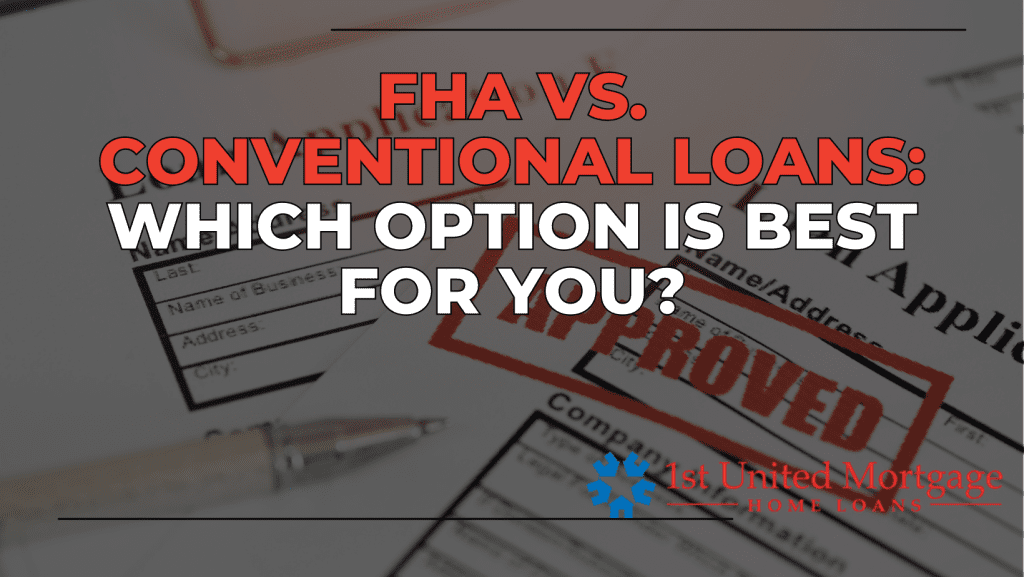
Choosing between a conventional loan and an FHA loan is a significant decision in your homeownership journey. Each option has its own benefits and considerations tailored to suit different financial situations. At 1st United Mortgage, we understand the importance of making an informed choice regarding your mortgage. Let’s explore the key factors to consider when deciding between conventional and FHA loans.
Understanding Mortgage Options
Both conventional and FHA loans offer low down payment options, making homeownership more accessible for many buyers. However, the suitability of each loan type depends on individual financial circumstances. While a conventional loan may be preferable for some, an FHA loan could be the better choice for others, especially those with lower credit scores.
Comparing Conventional 97 and FHA Loans
The Conventional 97 loan requires a minimum down payment of 3%, while the FHA loan requires a slightly higher down payment of 3.5%. Additionally, the minimum credit score requirements vary, with the Conventional 97 loan typically requiring a higher credit score of 620 compared to the FHA loan’s minimum of 580. Understanding these differences is crucial in determining which loan option aligns best with your financial profile.
Down Payment Requirements
Both conventional and FHA loans have minimum down payment requirements that borrowers must meet to qualify for a mortgage. FHA loans offer more flexibility with down payment options, making them an attractive choice for buyers with lower credit scores or limited funds for a down payment. On the other hand, conventional loans may be preferred by buyers who can afford a slightly higher down payment and want to avoid mortgage insurance.
Credit Scores
Credit scores play a significant role in determining eligibility for both conventional and FHA loans. While FHA loans may be more accessible to borrowers with lower credit scores, conventional loans offer lower mortgage rates and private mortgage insurance (PMI) costs for those with higher credit scores. Evaluating your credit score and financial goals is essential in selecting the right loan type for your needs.
Debt-to-Income Ratio Considerations
Your debt-to-income ratio (DTI) is another important factor that lenders consider when assessing your mortgage application. Conventional loans typically have a maximum DTI of 43%, while FHA loans may allow for a higher DTI of up to 50% in some cases. Understanding your DTI and how it affects your ability to qualify for a loan is crucial in determining which option is better suited to your financial situation.
Mortgage Insurance Costs
Both conventional and FHA loans require mortgage insurance, but the costs and terms vary between the two. FHA loans charge upfront and annual mortgage insurance premiums, while conventional loans may offer lower PMI costs for borrowers with higher credit scores. Evaluating the long-term costs and benefits of mortgage insurance is essential in choosing the most cost-effective option for your mortgage.
Deciding between a conventional loan and an FHA loan requires careful consideration of your financial circumstances, credit history, and homeownership goals. At 1st United Mortgage, we’re committed to helping you navigate the mortgage process and find the right loan option for your needs. Contact us today at (931) 548-1985 or visit our website to speak with our experienced mortgage specialists and explore your mortgage options.
